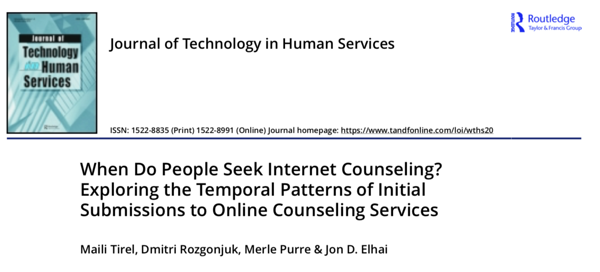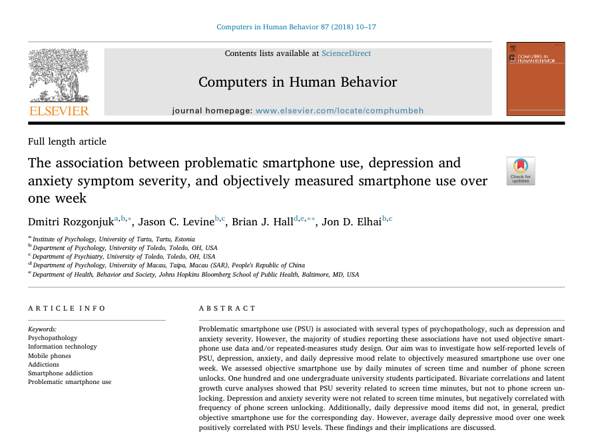When Do People Seek Internet Counseling? Exploring the Temporal Patterns of Initial Submissions to Online Counseling Services
Internet counseling can be a valuable resource for people who cannot seek mental health care due to various reasons. The aim of this study was to analyze the time patterns of first-time contacts made by clients to online counseling services.
The association between problematic smartphone use, depression and anxiety symptom severity, and objectively measured smartphone use over one week
Problematic smartphone use (PSU) is associated with several types of psychopathology, such as depression and anxiety severity. However, the majority of studies reporting these associations have not used objective smartphone use data and/or repeated-measures study design. Our aim was to investigate how self-reported levels of PSU, depression, anxiety, and daily depressive mood relate to objectively measured smartphone use over one week.


